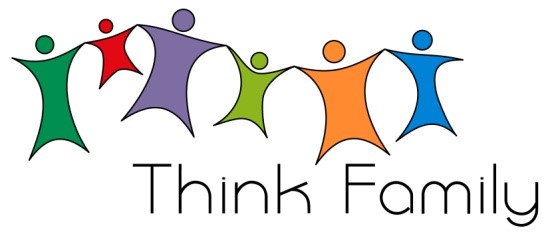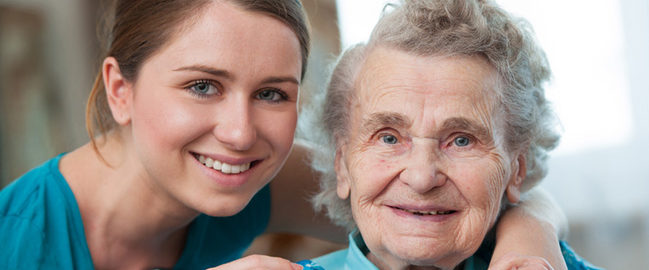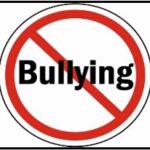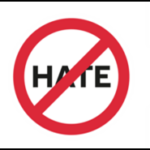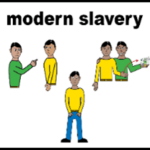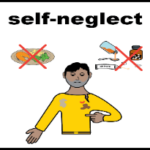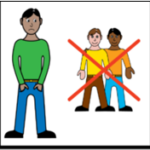Safeguarding
Safeguarding refers to the process of protecting children and vulnerable adults to provide safe and effective care.
Safeguarding is a term used in the UK to denote measures to protect the health, wellbeing and human rights of individuals, which allow people, especially children, young people and vulnerable adults to live free from abuse, harm and neglect.
At Bromley Healthcare, safeguarding is a priority and it is everyone’s business.
We are committed to ensuring that safeguarding and promoting the welfare of adults, young people and children at risk from abuse, neglect or harm, is embedded across all of our services in Bexley, Bromley, Greenwich and Lewisham.
All staff who work for Bromley Healthcare, must do so in accordance with our Safeguarding Adults at Risk and Safeguarding Children Policies. We have a dedicated, highly qualified Safeguarding Team that is comprised of a diverse skill mix including nursing, allied healthcare and social services backgrounds. Together, we:
Support colleagues to empower individuals, uphold rights and ensure people have control and choice in any decisions they make; making safeguarding personal. We uphold the Mental Capacity Act, and when working in a person’s best interests, continue to include them in their decision making process.
Take action to prevent neglect, abuse or harm from occurring at every opportunity, through training colleagues, raising awareness and making information accessible to enforce prevention.
Ensure every individual and any risks are respected, when dealing with safeguarding issues. All responses, will be proportionate to the risks presented.
Help all colleagues to put in place strategies to prevent abuse or neglect from occurring, and provide support for those who are at risk. We will promote the ‘Think Family’ approach.
Support colleagues to form effective partnerships within the local community, so abuse can be identified, reported and prevented. We will work collaboratively with professional networks, ensuring a multi-agency approach to all health and welfare matters.
Are clear that everyone is accountable and has a part to play when it comes to safeguarding and protecting those who are vulnerable. We will aim for transparency in all policy, procedure and care.
All staff:
- Have access to advice and support from Safeguarding Leads and the Bromley Healthcare Safeguarding Service, who have an expert knowledge in this field.
- Are equipped with the relevant training, knowledge, skills, and resources to enable them to respond quickly and appropriately to keep our patients safe.
- Work with the wider multi-disciplinary team for example local hospitals, GPs, social services and other professionals to ensure the needs of vulnerable children, young people and adults are effectively met.
Safeguarding Children
Safeguarding children along with child protection guidance and legislation, applies to all children up to the age of 18, this includes the unborn child.
All children have a right to be safe and protected from all forms of abuse and neglect. Safeguarding children and young people is everyone's business, and anything you notice can help a child at risk.
If you are concerned that a child or young person is experiencing, or is at risk of experiencing abuse or neglect you must take action. Safeguarding is more than protecting children and young people from harm, it is also about promoting their wellbeing and intervening early.
If you think a child is in immediate danger, don’t delay and call the police on 999.
If you are concerned that a child is at risk of abuse or neglect, or to ask for help or advice, contact the borough the child is resident in.
- Safeguarding Children in Bexley - bexleylscb.org.uk
- Safeguarding Children in Bromley - Bromley LSCB - Home (bromleysafeguarding.org)
- Safeguarding Children in Croydon - What is Safeguarding | Croydon Safeguarding (croydonlcsb.org.uk)
- Safeguarding Children in Greenwich Home - Greenwich Safeguarding Children Partnership
- Safeguarding Children in Lewisham - Lewisham Safeguarding Children Partnership - LSCP (safeguardinglewisham.org.uk)
If you are a child or young person reading this and you need help or would like to talk to someone, please call CHILDLINE on 0800 1111.
Safeguarding Adults
Anyone who is concerned that abuse or neglect may be taking place or feels they themselves are at risk, should seek help, even if the circumstances may appear trivial or small.
Here at Bromley Healthcare, we adhere to Making Safeguarding Personal (MSP). This is an important approach to safeguarding work; it is person-led and outcome-focused, aiming to engage the person in a conversation about how best to respond to their safeguarding situation in a way that enhances involvement, choice and control as well as improving quality of life, wellbeing and safety. The key principle of MSP is to support and empower each adult to make choices and have control about how they want to live their own life.
Supporting people when concerns are raised about abuse or neglect can be very difficult and distressing for everyone involved. Deciding what the right thing to do is can be stressful, particularly if the person you are concerned about is reluctant to accept support. If you are not sure what to do you can always seek advice.
If you are concerned about a vulnerable adult please contact the appropriate borough:
- Safeguarding Adults in Bexley BSAB Announcements - Bexley Safeguarding Adults Board (safeguardingadultsinbexley.com)
- Safeguarding Adults in Bromley Safeguarding adults – London Borough of Bromley
- Safeguarding Adults in Croydon Report abuse of an adult | Croydon Council
- Safeguarding Adults in Greenwich Protecting vulnerable adults | Royal Borough of Greenwich (royalgreenwich.gov.uk)
- Safeguarding Adults in Lewisham Lewisham Council - Safeguarding adults
To report a crime in an emergency, contact the police, call 999.
If the person is not in immediate danger, contact the police, call 101.
Bromley Safeguarding Adults Board also provides further help and support around Safeguarding Adults Bromley SAB - Home Page - Welcome to the Bromley Safeguarding Adults Board, BSAB
Children Looked After
At Bromley Healthcare, the Safeguarding Service includes the expertise of the Children Looked After Team, known as CLA, who promote the health and well-being of Children, Young People and Care Leavers who are looked after within the Borough of Bromley.
For further information and support around children looked after, please click on London Borough of Bromley Children Looked After Children looked after (bromley.gov.uk) or Homepage | CoramBAAF
Domestic abuse
Domestic abuse is an incident or pattern of incidents of controlling, coercive, threatening, degrading and violent behaviour including sexual violence, in the majority of cases by a partner or ex-partner, but can also be by a family member or carer. It is very common.
Domestic abuse can include but is not limited to the following:
- Coercive control (a pattern of intimidation, degradation, isolation and control with the use or threat of physical or sexual violence)
- Psychological and/ or emotional abuse
- Physical or sexual abuse
- Financial or economic abuse
- Harassment and stalking
- Online or digital abuse
For more information and to seek help for Domestic Abuse:
If you are in immediate danger, call 999 and ask for the police. If you can’t speak and are calling on a mobile press 55 to have your call transferred to the police.
- Bromley Safeguarding Adults Board Recognise the Signs and Where to Get Help for Domestic Abuse - Bromley SAB - Domestic abuse (bromleysafeguardingadults.org)
- London Borough of Bromley Domestic Abuse - Domestic abuse – London Borough of Bromley
- NHS Choices Getting Help for Domestic Abuse - Getting help for domestic violence and abuse - NHS (www.nhs.uk)
- Refuge National Domestic Violence Helpline - Home | Refuge National Domestic Abuse Helpline (nationaldahelpline.org.uk)
- Safe Lives Domestic Abuse Support - SafeLives - Ending domestic abuse
- Women’s Aid - Home - Women's Aid (womensaid.org.uk)
Mental Capacity Act
Everyone has the right to be involved in discussions and make informed decisions about their care. The Mental Capacity Act (MCA) is designed to protect and empower people who may lack the mental capacity to make their own decisions about their care and treatment. It applies to people aged 16 and over.
It covers decisions about day-to-day things like what to wear or what to buy for the weekly shop, or serious life-changing decisions like whether to move into a care home or have major surgery. Examples of people who may lack capacity include those with:
- Dementia
- A severe learning disability
- A brain injury
- A mental health condition
- A stroke
- Unconsciousness caused by an anaesthetic or a sudden accident
But just because a person has one of these health conditions does not necessarily mean they lack the capacity to make a specific decision. Someone can lack capacity to make some decisions (for example, to decide on complex financial issues) but still have the capacity to make other decisions (for example, to decide what items to buy at the local shop).
The Mental Capacity Act gives us a framework at Bromley Healthcare, for supporting people who find it difficult to make decisions about their own lives.
You can find out more information here:
- NHS MCA Support Guide - Mental Capacity Act - Social care and support guide - NHS (www.nhs.uk)
- Mind - What is the Mental Capacity Act? - Mind
Learning disabilities and autism
People with a Learning Disability and/ or Autism access healthcare at every stage of their lives therefore here at Bromley Healthcare, we can have a huge impact on their daily experiences.
Bromley Healthcare is committed to effectively supporting patients/ service users who have a learning disability and/or autism, to ensure they receive high quality, individualised, equitable care. We do this, by undertaking the following:
- All staff complete the Oliver McGowan mandatory training, this equips them with the relevant knowledge, skills, and attitude to enable them to care for patients effectively
- We pay attention to healthcare and communication passports, that hold specific information about an individuals’ health needs, methods of communication and other preferences
- We make reasonable adjustments; getting reasonable adjustments right is important to enable full access to healthcare, and help make the correct diagnostic and treatment decisions for patients. An example is the use of easy read resources
- We listen to parents and carers, recognising that they have a wealth of information about patients and their health. This supports in the identification of diagnostic overshadowing, recognising when behaviour is out of character for an individual, and may be a sign of pain or distress
- We promote multi-disciplinary working, and contact our local learning disability nurses for specialist advice and support where necessary
You can find more information on supporting people with a learning disability and/or autism here:
- Foundation for People with Learning Disabilities - Home | Foundation for People with Learning Disabilities
- Mencap - Access Learning Disability Advice and Support | Mencap
- National Autistic Society - National Autistic Society (autism.org.uk)
Further information and support
For more information and support on specific areas of abuse, the following links provide helpful advice.
Physical abuse: Assault, hitting, slapping, or other forms of physical harm.
- FGM Support - FGM: Organisations offering advice and support - Womankind Worldwide
- NSPCC - Identifying Child Physical Abuse & How to Prevent It | NSPCC
- Victim Support - Physical abuse - Victim Support
Sexual abuse: Inappropriate sexual activity or non-consensual acts.
- Rape Crisis - Rape Crisis England & Wales
- Stop It Now Helpline - Contact the Stop It Now! child sexual abuse helpline - Stop It Now
- The Survivor’s Trust - The Survivors Trust - Rape & Sexual Abuse Services UK
Psychological or emotional abuse: Enforced isolation, emotional harm, or neglecting someone’s cultural needs.
- Bromley Y - Bromley Y Home Page (bromley-y.org)
- Childline - Emotional abuse | Childline
- Relate - Emotional abuse | Relate
- Very Well Mind - How to Identify and Cope With Emotional Abuse (verywellmind.com)
Financial or material abuse: Misuse of an individual’s finances or belongings.
- Age UK - Financial abuse: what is it? | Age UK
- Predatory Marriage UK - Predatory Marriage UK – Reforming marriage laws and procedures to protect people with dementia
Modern slavery: Exploitation and forced labour.
- Modern slavery helpline - Modern Slavery Helpline
- Salvation Army - Modern slavery | The Salvation Army
Discriminatory abuse: Harm based on factors like race, gender, or disability.
- About Hate Crime - About Hate Crime - Stop Hate UK
- Galop - Galop - the LGBT+ anti-abuse charity
- Mencap - Who We Are | Mencap
Organizational or institutional abuse: Abuse within care settings or institutions.
- Ann Craft Trust - What is Organisational Abuse? - Ann Craft Trust
Neglect or acts of omission: Failure to provide necessary care or support.
- Bromley Safeguarding Adults Board - Bromley SAB - Home Page - Welcome to the Bromley Safeguarding Adults Board, BSAB
- Complex Case Pathway - Bromley SAB - (bromleysafeguardingadults.org)
- NSPCC - Neglect is also Child Abuse: Know All About It | NSPCC
Forced Marriage:
- GOV.UK Guidance - Forced marriage - GOV.UK (www.gov.uk)
- Honour based abuse - Karma Nirvana
Prevent/ Radicalisation:
- GOV.UK Guidance - Get help for radicalisation concerns - GOV.UK (www.gov.uk)
- NSPCC - Protecting children from radicalisation | NSPCC
Cyber bullying:


